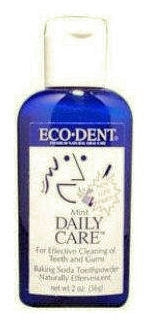As you may know from my writing here, I am something of an explorer - always looking for new things, new data, new connections, and new meanings in the world around me. Part of my energy is spent on self-examination. I'd like to share a few of my experiences here in hopes they may help you, should you find yourself in a similar "questing" state of mind.
Introspection is good
 A while back, I wrote about Dick Richards' wonderful book, "Is Your Genius At Work?" and described how I was trying to home in on what my genius is, but still hadn't nailed it. Well, I still can't name it but the process heas helped me on my journey. This book has some powerful exercises to guide the curious soul.
A while back, I wrote about Dick Richards' wonderful book, "Is Your Genius At Work?" and described how I was trying to home in on what my genius is, but still hadn't nailed it. Well, I still can't name it but the process heas helped me on my journey. This book has some powerful exercises to guide the curious soul.
In addition to Dick's book, I've found some strong insights through spending time with Phil Gerbyshak's book, "10 Ways to Make It Great!" (also reviewed recently). In Phil's book, there is a strong, focusing thread of, "What is it that you want to be known for, and what can you do every day to increase the odds that it'll come true?"
Seek others' input
It's easy to navel-gaze forever, but I'm also finding tremendously fertile ground in conversations I've been having with my friends and coworkers. At the recommendation of a mentor of mine I've been interviewing people I work with and asking them four simple questions, developed with help from my office mate Gene. The questions are simple and humbling (the parentheses represent what I usually say when people ask, "What do you mean by that question"):
- In your opinion, what am I good at?
- (What activities are the best fit for my skills, as you see them?)
- What am I not good at?
- (What activities are not a good fit for my skills, or seem particularly challenging to me, from your perspective)
- What is the highest value I provide to you or the organization?
- (If I stopped working here, what would be the hardest thing to do without or replace?)
- How could I double or triple my value to you or the organization?
Obviously, I picked people I trust (to be honest, to keep my best interest in mind, etc.) but it's still difficult to have these conversations with people you admire or respect. Trust me - it's worth it to power through the anxiety.
One thing that can be challenging is to simply listen during these sessions. Fight your impulse to dispute what you hear, or play it down, or even lead your interviewee down a different path. Try to limit your commentary responses to, "Thank you," or, "I didn't realize that," and make liberal use of phrases like, "Tell me more...," and, "What do you mean by that?"
More perspectives lead to more clarity
My conversations validated a lot of my own perceptions about what I'm good at, and what I'm not good at. But I heard some things I never realized I even did, so I certainly never considered them to be strengths. And I found that increasing my value to others was generally not about doing more things (my tendency) - it was more about doing more of a few things. This is helping me cut out things that don't add tangible value to myself or others, which is a very good thing.
If you try this out, let me know how it works for you.
By the way - if you can't find enough people you trust to have these kinds of conversations, that's something to think about. I can think of times in the past when that's been true for me, and I'm glad that's not the case any more - that's no way to live.
Related posts:
- Pretend you create everything that happens to you (5/10/2005)
- Take responsibility for your own well-being (5/14/2005)
- Fear the Weasel (7/21/2006)
- Technorati:
Books, self improvement

 Dave Cheong
Dave Cheong The new restrictions on carry-on items have put a cramp in my style, so to speak. I don't like checking luggage on short trips because of the extra time checking bags introduces, and the inherent risk of lost stuff (I've had my share of lost luggage and pilfered items from my luggage).
The new restrictions on carry-on items have put a cramp in my style, so to speak. I don't like checking luggage on short trips because of the extra time checking bags introduces, and the inherent risk of lost stuff (I've had my share of lost luggage and pilfered items from my luggage). If, like me, you're fond of blending audiobooks into your reading list, I've got a great resource for you.
If, like me, you're fond of blending audiobooks into your reading list, I've got a great resource for you. Having spent a lot of time in software companies, I'm familiar with a concept called "time boxing" to help prevent software development projects from going on forever. I didn't realize I have been using a sort of "time box" approach in my personal projects, until I read Dave Cheong's write-up about doing just that.
Having spent a lot of time in software companies, I'm familiar with a concept called "time boxing" to help prevent software development projects from going on forever. I didn't realize I have been using a sort of "time box" approach in my personal projects, until I read Dave Cheong's write-up about doing just that.